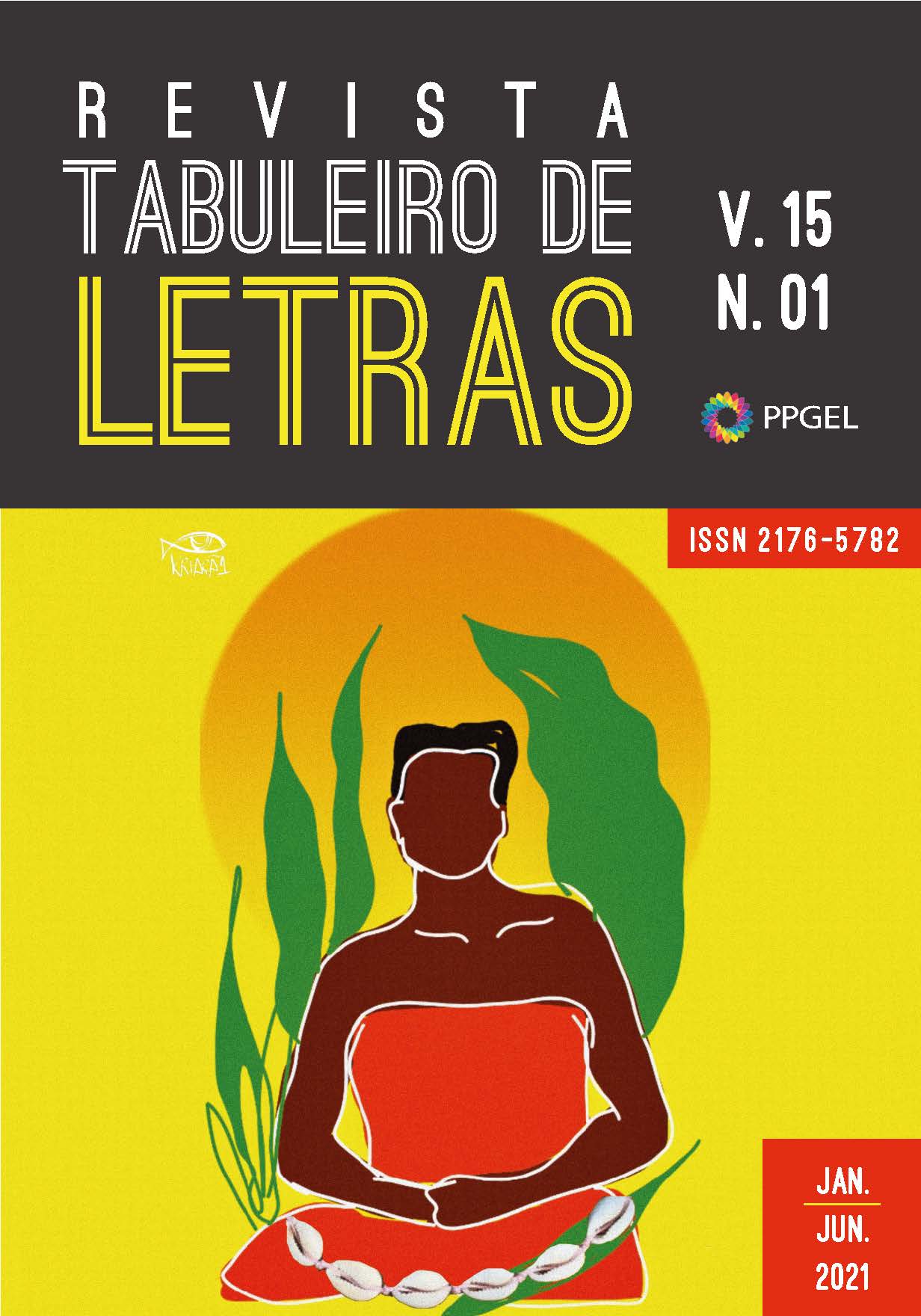Adaptação/apagamento:
Reflexões e provocações sobre a língua brasileira de sinais
DOI:
https://doi.org/10.35499/tl.v15i1.11348Abstract
This paper proposes to problematize and encourage teachers and teacher trainers in Libras and other languages (mother or foreign) to (re)think about the meanings constructed and conveyed by the discourses of theoretical-methodological-analytical adaptation and curricular adaptation with regard to educational contexts involving deaf people. Based on this discussion, we asked if theories based on descriptive and analytical premises of oral languages, as well as their respective methodological processes, would contemplate the specificities of sign languages, in our case, Libras or if, on the other hand, they would not incur a movement of erasure of such singularities. Based on an ethical-political stance, and according to the reflections built in this paper, we understand that such adaptation movements seem to neglect the needs and interests of the deaf population and, therefore, assume ways of erasing the particularities of these citizens. Adapting refracts the meaning of erasing which, in turn, acts as a maintaining force of the prevailing hegemonic forms. We realize that the deaf subject is not seen from his realities, since the teaching-learning processes and research that involves him are naturalized, having the listener as a reference. Therefore, the latter is also a linguistic normative parameter sewn by the cisheteropatriarcal, white and Christian social structure of our national context. The text ends with an invitation to reflection, reconceptualization and action.
Downloads
References
GESSER, Audrei. LIBRAS?: Que língua é essa?: crenças e preconceitos em torno da língua de sinais e da realidade surda. São Paulo: Parábola Editorial, 2009.
KLEIMAN, Angela. B. Agenda de Pesquisa e Ação em Linguística Aplicada: problematizações. In. MOITA LOPES, L. P. (Org.). Linguística Aplicada na Modernidade Recente: festschrift para Antonieta Celani. São Paulo: Parábola Editorial, 2013, pp. 39-58.
MENDES, Enicéia Gonçalves; TANNÚS-VALADÃO, Gabriela; MILANESI, Josiane Beltrame. Atendimento Educacional Especializado para estudante com deficiência intelectual: os diferentes discursos dos professores especializados sobre o que e como ensinar. Revista Linhas. Florianópolis, v. 17, n. 35, p. 45-67, set./dez. 2016.
MESQUITA, A. M. A.; RODRIGUES, J. F. B.; CASTRO, K. P. A Política Curricular
no Contexto da Inclusão e seus Mecanismos de Diferenciação Curricular. Revista Teias v. 19, n. 55, Out./Dez. 2018. pp. 70-88.
ONOFRE, JOELSON ALVES. Repensando A Questão Curricular: caminho para uma educação anti-racista. Práxis Educacional, Vitória da Conquista, v. 4, n. 4, p. 103-122 , jan./jun. 2008.
PENNYCOOK, Alastair. A Linguística Aplicada dos anos 90: em defesa de uma abordagem crítica. In: SIGNORINI, I et CAVALCANTI, M. (orgs.). Linguística Aplicada e Transdisciplinaridade. Campinas: Mercado de Letras, 1998.
QUADROS, Ronice M., KARNOPP, Lodemir B. Língua de sinais brasileira: estudos linguísticos. Porto Alegre: Artmed, 2004.
RIBEIRO, Djamila. Lugar de fala. São Paulo: Pólen, 2019.
SACRISTÁN, J. Gimeno. Currículo e diversidade cultural. In: SILVA, Tomaz Tadeu da; MOREIRA, Antonio Flávio (Org.). Territórios contestados: o currículo e os novos mapas políticos e culturais. Petrópolis: Vozes, 1995.
SANTOS, Fábio. R. Um estudo sobre o processo de ensino-aprendizagem dos alunos da disciplina Libras no curso de Licenciatura em Letras-Português de uma instituição do ensino superior pública de Alagoas. 2017. 153 f. Dissertação (Mestrado em Linguística) - Universidade Federal de Alagoas, Maceió, 2017
SIQUEIRA, Georgea Vale de Q. A Relação Colonizador X Colonizado em as Aventuras de Ngunga. Revista Arredia, Dourados, MS, Editora UFGD, v.3, n.5: 62-76 ago./dez. 2014.
SOBRAL, Adail. Ato/atividade e evento. In. BRAIT, B (Org.). Bakhtin: conceitos-chave. 5. ed. São Paulo: Contexto, 2016, pp. 11-36.
STREVA, JULIANA MOREIRA. Colonialidade do Ser e Corporalidade: O Racismo Brasileiro Por Uma Lente Descolonial. Revista Antropolítica, n. 40, Niterói, p.20-53, 1. sem. 2016.
VOLÓCHINOV, V. Marxismo e a filosofia da linguagem: problemas fundamentais do método sociológico na ciência da linguagem. Tradução, notas e glossário de Sheila Grillo e Ekaterina Vólkova Américo. São Paulo: Editora 34, [1929] 2017.
Downloads
Published
How to Cite
Issue
Section
License
Autor(es) conservam os direitos de autor e concedem à Revista o direito de primeira publicação, com o trabalho simultaneamente licenciado sob a Licença Creative Commons Attribution que permite a partilha do trabalho com reconhecimento da autoria e publicação inicial nesta Revista.

















